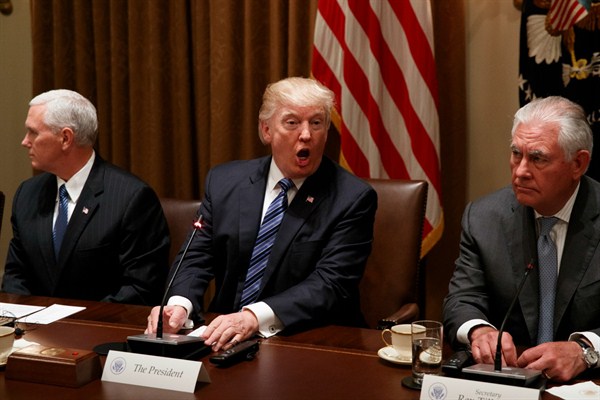We are used to thinking and speaking about a nation state in the global arena as an actor with a coherent agenda, voice and infrastructure for pursuing its policy preferences. Six months into the Trump administration, it has become clear that “the United States” no longer exists in the sense of this usage.
The implications are alarming, as it coincides with an emerging awareness, both domestically and abroad, that the new U.S. president is a weak leader who is not at all prepared to follow up on his policy improvisations and bluffs. As a result, we have now entered a more dangerous period of Donald Trump’s presidency, one where great powers and rivals will test the U.S. more openly, where legacy conflicts and new crises will call more urgently for American engagement, but where the administration will be hard-pressed to respond effectively.
The least-bad scenario is one in which American power and influence are frittered away rather than deployed, and where geopolitical rivalries and shifting balances of power destabilize already tenuous regional accommodations. The worst-case scenario is one in which a thin-skinned and impetuous Trump, suddenly realizing that he is the proverbial sucker at the table, lashes out to restore a semblance of his own credibility, with results that are as self-destructive for U.S. interests as they are destructive for the world.

